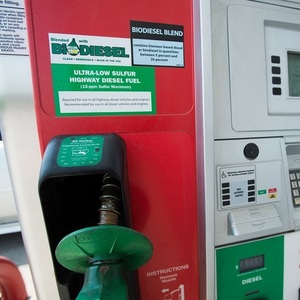Iowa legislature urged to reauthorize biofuel tax differentials

Photo: Jenna Higgins Rose, Iowa Biodiesel Board
May 28, 2020
BY Iowa Renewable Fuels Association
As Iowa’s elected leaders prepare to return to the State Capitol and wrap up the 2020 legislative session, Iowa Renewable Fuels Association members urge legislators to take action on key biofuel legislation.
House File 2279 and Senate File 2403 would extend and modernize fuel tax differentials for E15 and higher ethanol blends and B11 and higher biodiesel blends, which are set to expire June 30. With the passage of either bill, Iowa will not only continue to support renewable fuels but put millions of dollars back into the Road Use Tax Fund each year for vital infrastructure projects.
“If the legislature allows the biofuel tax differentials to expire, not only will it raise prices on consumers at the pump, it will also hurt Iowa’s farmers and biofuels producers who are suffering as a result of the COVID-19 pandemic and trade disputes,” said Nathan Hohnstein, IRFA policy director. “Since the implementation of the current tax differential, we’ve seen biofuel blend sales increase dramatically, but with June 30 just around the corner, it is imperative the legislature take action now. Iowa cannot afford to take a step backward in promoting the use of renewable fuels.”
Advertisement
Advertisement
Since the first fuel tax differential bill was passed, which included E10, Iowa has seen E10 and B11 and higher biodiesel blends go from niche fuels to making up 86 percent and 57 percent of sales in 2019, respectively. Hohnstein pointed to this as a sign the fuel tax differentials are doing what they are designed to do. Because of this success, the new fuel tax differential modernizes the ethanol side of the policy by applying it to E15 and higher blends, making millions of dollars available for road and bridge repairs.
“The fuel tax differential helped make E10 Iowans’ fuel of choice,” Hohnstein said. “Now is not the time to let up and jeopardize the progress we’ve made. If reauthorized, the modernized tax differential will continue to help grow sales of Iowa’s own home-grown higher blends of ethanol and biodiesel.”
Advertisement
Advertisement
Related Stories
California’s new specified source feedstock attestation requirement: A critical new compliance step for renewable fuel producers
As of July 2025, California’s SCFS requires renewable fuel producers using specified source feedstocks to secure attestation letters reaching back to the point of origin. This marks a significant shift in compliance expectations.
The public comment period on the U.S. EPA’s proposed rule to set 2026 and 2027 RFS RVOs and revise RFS regulations closed Aug. 8. Biofuel groups have largely expressed support for the proposal but also outlined several ways to improve the rulemaking.
The U.S. renewable fuels industry on Aug. 8 celebrated the 20th anniversary of the Renewable Fuel Standard. Federal lawmakers also marked the occasion with resolutions introduced in the House and Senate earlier this month.
Iowa farmers have a new market opportunity for their 2025 soybean crop. Landus is expanding its Clean Fuel Regulation initiative, made possible by recent policy changes expected to increase Canada's demand for liquid biofuel.
Klobuchar, Moran introduce bipartisan legislation to support biorefineries, renewable chemicals, and biomanufacturing
Sens. Amy Klobuchar, D-Minn., and Jerry Moran, R-Kan., on July 31 announced the introduction of the Ag BIO Act. The legislation aims to update the USDA’s loan guarantee program to better support biorefining projects.
Upcoming Events










